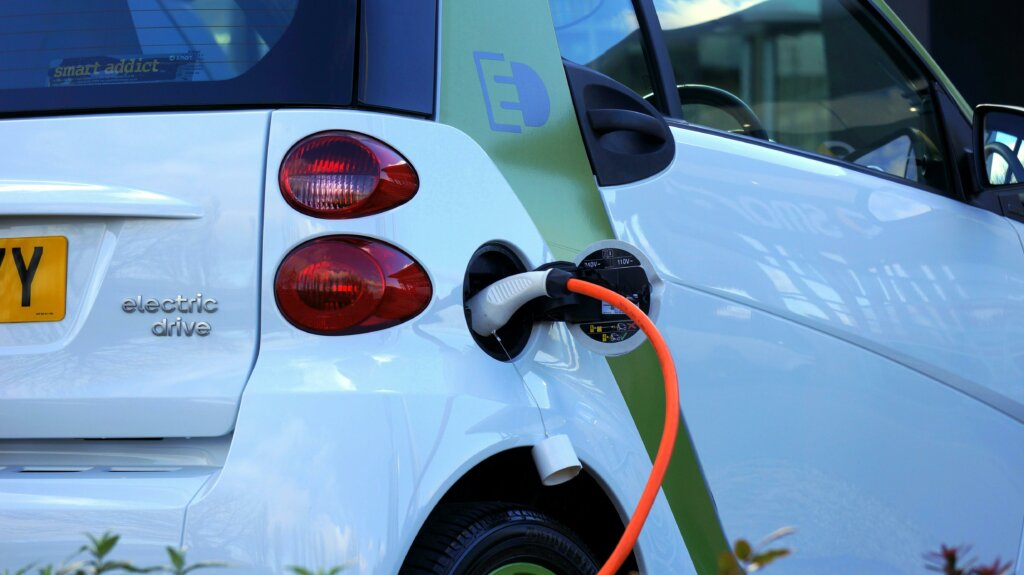Driving Change: How Electric Vehicles Are Powering a Greener Future
By lowering pollutants and reducing our reliance on fossil fuels, electric vehicles are revolutionizing transportation and guiding humanity toward a cleaner, more sustainable future.

Electric cars, or EVs, are here to stay, spurring innovation and providing a more environmentally friendly option than gas-powered vehicles. The need to switch to sustainable transportation has never been greater as worries about climate change grow. EVs are becoming more and more popular as a vital option that combines cutting-edge technology with sustainable energy sources. This blog will examine how the growing popularity of electric cars is pushing the world’s automotive sector to change and lower carbon emissions, among other positive effects.
Electric Vehicle Development
Despite appearing to be a relatively recent development, electric vehicles have a more than a century-long history. Among the early automobile technologies in the late 1800s were electric vehicles. But because internal combustion engines could produce them at a lower cost and with a greater range, they quickly eclipsed them. In the present era, we are seeing a rebirth of the electric car. Modern battery technology, including lithium-ion batteries, has improved the efficiency, affordability, and usability of EVs for daily use. The EV market is expected to increase significantly as a result of the introduction of EV models by conventional automakers as well as Tesla and Nissan. The necessity to fight climate change and cut greenhouse gas emissions is driving this evolution.
Electric Vehicles’ Environmental Impact
The ability of electric vehicles to significantly lower carbon emissions is one of its main advantages. Since EVs are powered by electricity rather than gasoline, they have zero tailpipe emissions while still emitting carbon dioxide and other pollutants. Given that one of the main causes of global greenhouse gas emissions is transportation, this move is especially significant in the fight against climate change. EVs also contribute to less air pollution in cities, which improves quality of life. The environmental impact of electric vehicles (EVs) increases significantly when combined with renewable energy sources like solar or wind power. This provides a route toward a low-carbon future that is critical for the world.
The Development of Charging Infrastructure
The availability of charging stations has been one of the main issues for prospective EV owners, a condition known as “range anxiety.” But this terrain is shifting quickly. Both public and commercial sectors are making significant investments in creating reliable charging networks. With rapid charging stations located on roads and home chargers available, charging an electric vehicle has never been simpler. Governments all across the world provide incentives for installing home chargers, and companies like Tesla have pioneered networks like the Supercharger. Long-distance driving is becoming more convenient and feasible for electric vehicles because to developments in fast-charging technology, which is reducing the amount of time needed to charge an EV.
Economic and Consumer Advantages of Plug-in Vehicles
Electric vehicles provide major financial advantages in addition to environmental ones. Due to their lower fuel and maintenance expenses, electric vehicles (EVs) might save money over time even though their initial cost may be higher than that of conventional cars. Since EVs have fewer moving parts than gasoline, they require less maintenance—no more oil changes, for example—and are generally less expensive than fuel. Furthermore, a lot of nations provide tax breaks and refunds for buying electric cars, which further reduces the upfront costs. The average consumer can now afford EVs more easily as production increases and battery costs continue to decline, which will increase demand and drive down prices.
Innovation and the Future of Electric Vehicles
The outlook for electric cars is more promising than ever, as ongoing advancements continue to change the way we view mobility. Even greater range and faster charging periods are promised by developments in battery technology, such as the creation of solid-state batteries. Another area closely related to EVs is autonomous driving, where it is anticipated that many self-driving vehicles will be electric. EVs will run on cleaner energy as renewable energy is incorporated into power systems more and more, which will increase their environmental advantages. Furthermore, the move toward shared, electric, and driverless cars is expected to change the way people travel in cities, increasing sustainability and decreasing the necessity for individual automobile ownership.
The popularity of electric cars signifies a significant change in the way we think about transportation, striking a balance between sustainability and innovation. Electric vehicles (EVs) present a viable answer to many of the environmental and social issues of our day by lowering carbon emissions, enhancing air quality, and generating financial savings. Electric cars are poised to take the lead in both private and public transportation as infrastructure grows and technology advances. Electric vehicles are changing the way we move and live, and they are leading the way in the correct direction of a greener future.







